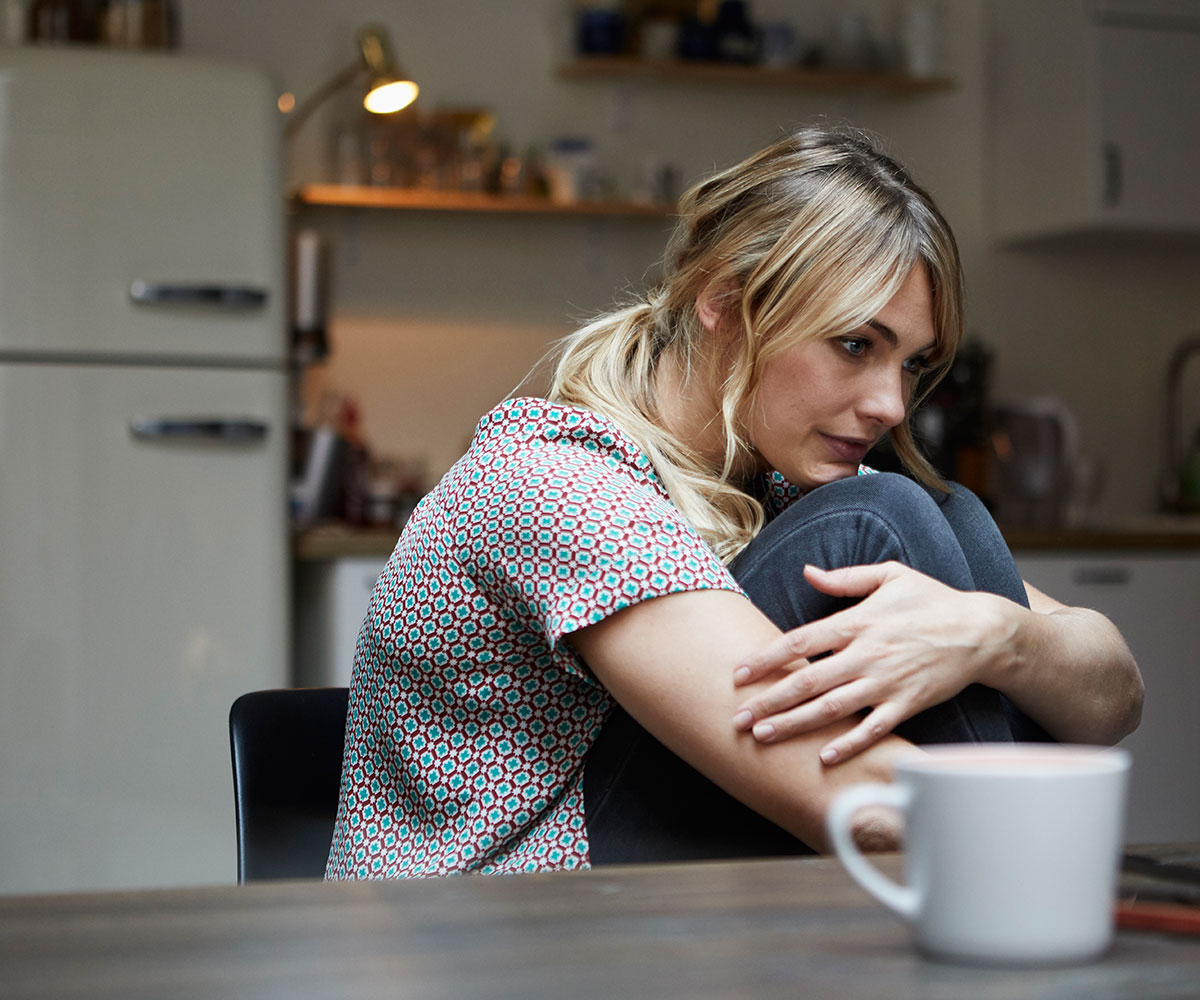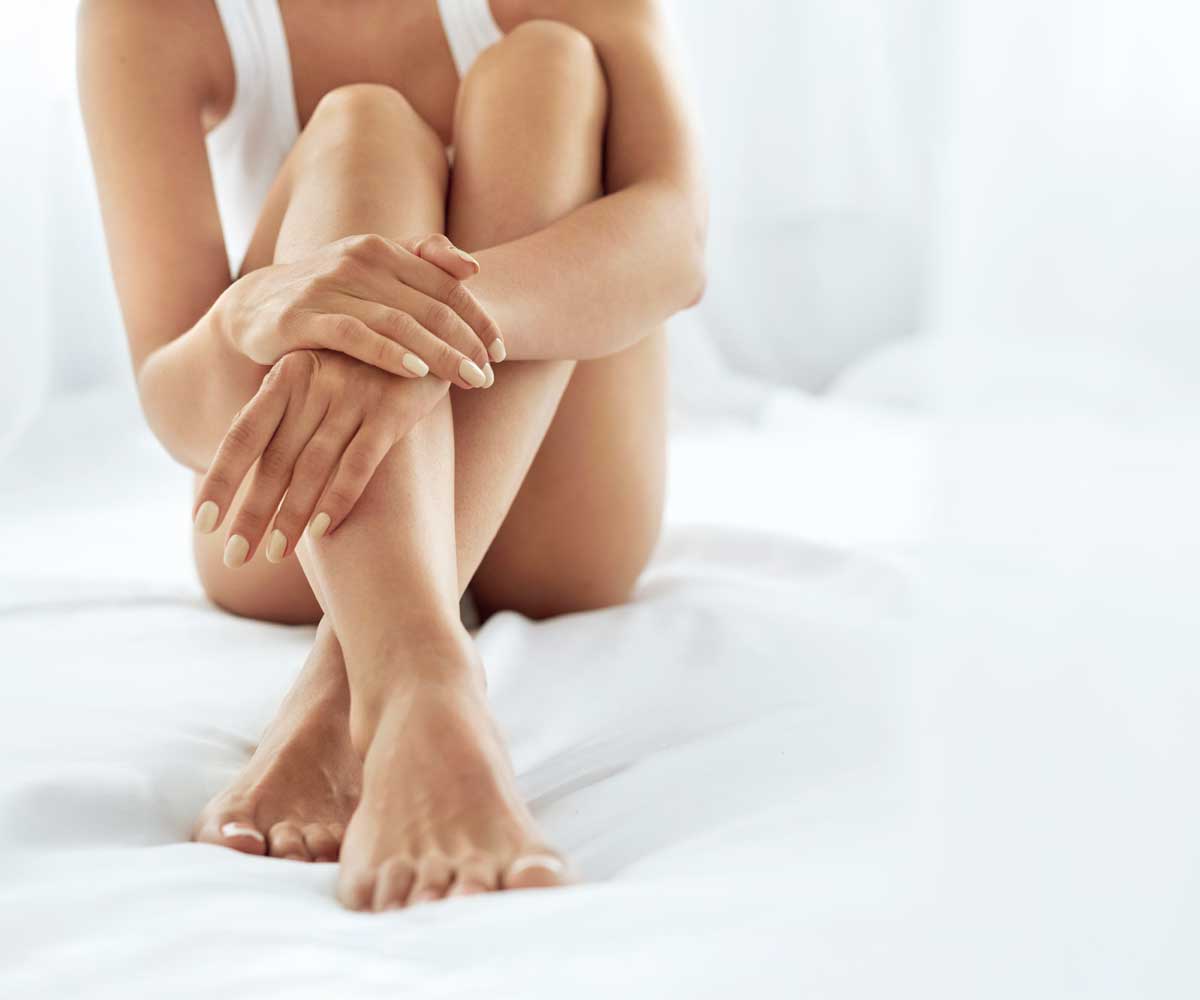As someone who is in their twenties, my knowledge of menopause was undeniably lacking before I sat down to watch The Truth About Menopause, a 50-minute documentary which aims to, as the name suggests, reveal the truth about menopause.
Menopause was just something that I pushed to the back of my mind, figuring I’d learn more about it closer to the time, but as it turns out, even women going through menopause are often embarrassed and left in the dark about what’s happening to their body and what options are available to them when symptoms become unbearable.
Considering it’s something about half of the population will experience in their lifetime, it seems bizarre that such a stigma around menopause exists and that there are so many misconceptions.
In the documentary, well-respected British journalist Mariella Frostrup shares her own experience with menopause and investigates the latest science surrounding it, including a procedure that could actually reverse the menopause.

The BBC-funded documentary presented by well-known British journalist Mariella Frostrup follows her personal experience with menopause, the stigma that surrounds menopause and the treatments available to women now and in the future. (Image: Supplied)
In New Zealand the average age of menopause is 52, however it can also come much earlier, with premature menopause creating, at times, heartbreaking consequences for women who still hope to have children.
Menopause occurs when the ovaries stop releasing eggs so your periods stop, and the levels of the female hormones oestrogen and progesterone increasingly decline and it’s this reduction of oestrogen that can cause symptoms such as hot flushes, night sweats, mood changes and sleep loss.
Further down the line women may experience vaginal dryness and longer-term consequences can cause osteoporosis and an increased risk of cardiovascular disease, none of which sound remotely enjoyable, but there is medication available to help abate these symptoms, however the most effective, hormone replacement therapy (HRT) and now known as menopausal hormonal therapy, has for years been shrouded in misinformation.
Specifically the misconception that HRT will dramatically increase women’s chances of being diagnosed with breast cancer.
In The Truth About Menopause, Mariella visits Professor Janice Rymer at Kings College London. Janice, a Kiwi based in London, is a consultant gynaecologist and vice president of the Royal College of Obstetricians and Gynaecologists and talks Mariella through the risks of taking HRT, and how those risks actually stack up against common lifestyle factors.
I also got the opportunity to talk to Janice, who agreed to explain the real dangers of taking HRT to me.

Menopause affects women differently, however common symptoms include hot flushes, mood changes and sleeplessness. (Image: Getty)
After a poorly reported study from the US Women’s Health Initiative (WHI) in 2002 which incorrectly demonised HRT by linking it to an increased risk of breast cancer and heart attacks, the use of HRT suffered a dramatic decline, despite the fact it remains one of the most effective treatments for menopausal symptoms.
When looking at the statistics, Janice explains that out of 1000 women, 23 will be diagnosed with breast cancer in the background instance, that is, without HRT in the mix. If taking combined HRT of oestrogen and progesterone, the cases of breast cancer diagnoses goes up by four.
A small increase in risk, but a higher risk nonetheless.
However, the important thing to understand, Janice says, is how the risk of breast cancer compares when common lifestyle factors are taken into account.
“You know, people talk about the risk of hormone replacement therapy, but actually when you look at the hard data, the risks are only associated with using oestrogen and progestogen combined,” Janice explains to me.
“If you’re drinking two or more units of alcohol a day, you actually risk five more women being diagnosed with breast cancer. But I think the big one is obesity.
“If you’re overweight or obese you’re going to get 24 extra cases,” says Janice.
This means being obese makes a woman six times more likely to be diagnosed with breast cancer than if she was using HRT – that is a very significant increase, particularly when in NZ, one in three adults are likely to be obese.

When compared to common lifestyle factors such as obesity, the risk of a breast cancer diagnosis of someone on HRT is six times less likely. (Image: Getty)
And that doesn’t take into account that as well as helping to decrease more immediate symptoms of the menopause such as hot flushes and sleeplessness HRT also helps to decrease your risk of the longer-term consequences such as osteoporosis and cardiovascular disease.
“In all the studies that have been done, mortality is not increased, there was a slight increase of the diagnosis of breast cancer, but mortality is not increased.
“All-in-all it puts it into perspective really,” Janice says.
When asked why she agreed to be part of the documentary she says she feels passionate about dispelling misconceptions about HRT.
“A lot of people won’t get prescribed HRT because they think it’s dangerous,” Janice tells me.
“I do think that many women have been led astray by scaremongering about HRT and I think that’s what Mariella was trying to do with The Truth About Menopause I suppose, try and get some decent facts across about the menopause and about hormone replacement therapy.”

Throughout the documentary many women share their varying menopause with Mariella. (Image: Supplied)
Throughout the documentary, presenter Mariella also discusses the shame and taboo that seems to hang over the topic of menopause with many women too embarrassed to talk about what they’re going through or to seek advice or support.
“It’s really weird isn’t it?” Janice replies, when I ask why she thinks there’s such a stigma and lack of understanding around menopause.
“We were talking about menopausal women in the workplace and it’s weird to be making a joke about people being menopausal and having hot flushes and things which then makes women embarrassed to talk about it.
“Obviously I’m a gynaecologist though,” Janice laughs.
“So I do have women coming to see me [about menopause], but I don’t know why they find it difficult to come and talk about it and it’s a shame.
“I do think documentaries like this are very helpful because I think women do start to talk about it and raising awareness and therefore raising education – I think it’s very important.
“If women are having a terrible time and they don’t have their doctor and they’re not receiving HRT then it can completely transform their quality of life and I see it happening all the time.”

HRT is currently one of the most effective ways to treat menopause symptoms, however the documentary also explore new developments that may be available to women in the future. (Image: Getty)
And it seems simply talking about menopause can really make a difference, not just to help break the stigma surrounding menopause but it could also potentially help to decrease symptoms too.
In the documentary a handful of women experiment learning cognitive behavioural therapy, which helps to change patterns of thinking and therefore how they feel.
While Mariella says in the documentary that she was initially sceptical, saying she didn’t want menopause to be reduced to a “mental thing” she discovered the women really noticed a significant, positive difference, which she and the women agreed came down in part, to learning to be comfortable with menopause.
And how do we become comfortable with menopause? By keeping the conversation going Mariella concludes in the documentary, talking loudly and unashamedly about the ‘m’ word: menopause.
Watch The Truth About Menopause, exclusively available in New Zealand on SkyGo.

